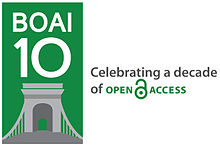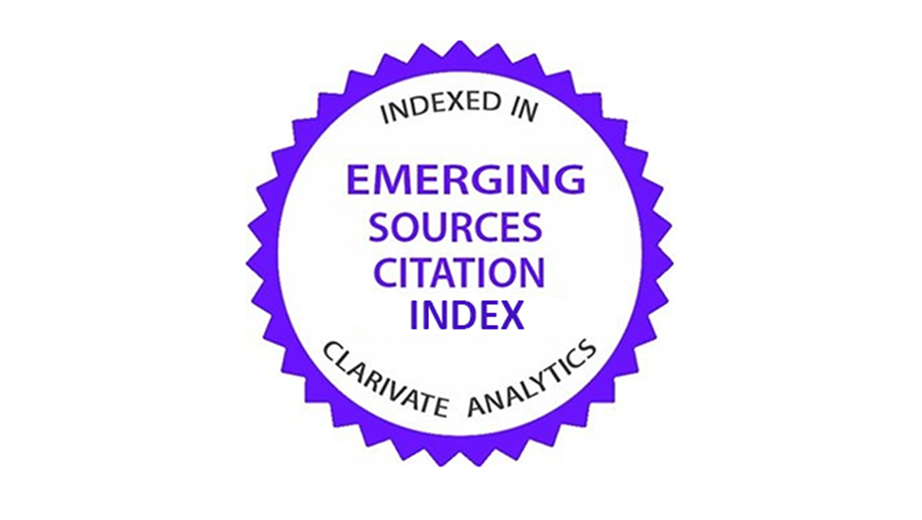Focus and Scope
Caraka Tani: Journal of Sustainable Agriculture is an international scientific journal focused on sustainable agriculture. Referring to its name Caraka Tani (Caraka : messenger; Tani : farmer, farming, agriculture), Caraka Tani has a mission to convey the messages to the world, especially in developing countries, for carrying out agriculture practices in a sustainable manner by paying attention to 3 main aspects of sustainability; namely: environmental health, economic profitability, and social and economic equity. These aspects are expected to be applied with regard to resources, uniqueness and specific wisdom of every region. Other aspects are also welcome as long as it can be applied in developing countries.
Caraka Tani: Journal of Sustainable Agriculture covers research in the following areas:
1. Agricultural conservation
2. Agricultural ecology
3. Organic farming
4. Agro biodiversity
5. Permaculture covering the economic aspects of sustainable agriculture; agribusiness, social-economic agricultural issues, agricultural development, agroindustry
6. Agricultural diversification
7. Soil and water conservation
8. Soil quality and health
9. Agricultural climate
10. Food science, safety and security
11. Animal welfare
12. Integrated pest and disease control biologically
Section Policies
Regular Articles
Review Articles
Case Studies and Short Communications
In Press
Editorial
Peer Review Process
The articles submitted to Caraka Tani: Journal of Sustainable Agriculture will be processed through a formatting review by the editor and independently reviewed by two peer reviewers. The review process applies Double Blind method. Decisions from reviewers are a top priority for editors to make decisions. The time required by reviewers to complete a round review process is three weeks. Generally, prospective reviewers will be selected based on their reputation in the suitability of their expertise. The decision for publication, amendment, or rejection is based on their reports/recommendation. After being reviewed, there will be four kinds of editor decision based on reviewers’ recommendation:
> Accept Submission: The submission will be accepted without revisions.
> Revisions Required: The submission will be accepted after minor changes have been made.
> Resubmit for Review: The submission needs to be re-worked, but with significant changes, may be accepted. It will require a second round of review, however.
> Decline Submission: The submission will not be published in the journal.
Publication Frequency
Caraka Tani: Journal of Sustainable Agriculture publishes four issues in a year:
January
April
July
October
Open Access Policy
Caraka Tani: Journal of Sustainable Agriculture provides immediate open access to its content on the principle that making research freely available to the public supports a greater global exchange of knowledge.
The journal is open access journal which means that all content is freely available without charge to users or / institution. Users are allowed to read, download, copy, distribute, print, search, or link to full-text articles in this journal without asking prior permission from the publisher or author. This is in accordance with Budapest Open Access Initiative.


Archiving
This journal utilizes the LOCKSS system to create a distributed archiving system among participating libraries and permits those libraries to create permanent archives of the journal for purposes of preservation and restoration. More...
Plagiarism
Authors should submit only original work that is not plagiarized and not has been published or being considered elsewhere. Turnitin or other software will be used by the editorial team to check for similarities of a submitted manuscript with existing literature.

Publication Ethics and Malpractice Statement
| PUBLICATION ETHICS AND MALPRACTICE STATEMENT (PEMS) CARAKA TANI: JOURNAL OF SUSTAINABLE AGRICULTURE |
Introduction
Caraka Tani: Journal of Sustainable Agriculture is a peer-reviewed journal committed to ensuring the highest standards of publication ethics. All parties involved in the publishing process (editors, authors, reviewers and the publisher) have to agree upon standards of ethical behaviour. Our Publication Ethics and Malpractice Statement (PEMS) is based on the Code of Conduct and Best Practice Guidelines for Journal Editors of the Committee on Publication Ethics – COPE (available at http://publicationethics.org/).
Authors should be aware that Caraka Tani: Journal of Sustainable Agriculture is an open access journal. Caraka Tani: Journal of Sustainable Agriculture publishes two issues a year (published in April and October). All articles are made available to the readers free of charge without any subscriptions. All content is made available online, including previous issues and articles.
Information on ownership and management are clearly stated in the journal’s homepage (https://jurnal.uns.ac.id/carakatani/about). The journal’s website has been designed in a way that high ethical and professional standards are ensured. The name of the journal is unique and is not aimed to be confusable with any other journals.
The Editor-in-Chief and the Editorial Board
Caraka Tani: Journal of Sustainable Agriculture has an established Editorial Board with recognized experts in 3 main aspects of agricultural sustainability; namely: environmental health, economic profitability, and social and economic equity. The full names and affiliations of Editorial Board Members are available at https://jurnal.uns.ac.id/carakatani/about/editorialTeam. Contact information for the Editorial Office is available at https://jurnal.uns.ac.id/carakatani/about/contact, as well as copyright and licensing information also given on our journal’s website and are available at https://jurnal.uns.ac.id/carakatani/about/submissions#copyrightNotice. We are highly committed to full editorial independence.
The Editor-in-Chief and the Editorial Board of Caraka Tani: Journal of Sustainable Agriculture are responsible for
- Deciding on whether the manuscripts submitted to the journal should be published or not. In making such decisions, they are guided by the policies of the journal and the instruction for Authors, available here: https://jurnal.uns.ac.id/carakatani/about/submissions#onlineSubmissions;
- Providing guidance to guest editors, authors and reviewers on the whole publication process;
- Providing new editorial board members with guidelines and keeping existing members updated;
- Evaluating manuscripts exclusively on the basis of their academic and intellectual merit, without regard to race, age, gender, sexual orientation, disability, ethnic origin, religious belief, citizenship, political orientation or social class;
- Ensuring a fair and unbiased double-blind peer review of the manuscripts with all information kept confidential;
- Ensuring that authors’ and peer reviewers’ identities are protected;
- Ensuring that reviewers selected do not have any conflict of interest with the author(s) and that reviewers have the knowledge and experience to undertake a decent review;
- Developing and maintaining a database of suitable reviewers and updating it on the basis of reviewer performance;
- Taking appropriate actions when ethical complaints are raised concerning a submitted or published manuscript. In cases of a suspected misconduct, they follow the COPE guidelines available at http://publicationethics.org/.
Authors and Authors’ Responsibilities
We acknowledge that different institutions and countries have different norms on who is listed as an author of the manuscript submitted. However, all authors should apply to the following principles:
- Authors should have substantial contributions to the conception and design of the work and/or data gathering & analysis and/or the interpretation of the results;
- Authors should not publish the outcomes of the same research in more than one journal, including Caraka Tani: Journal of Sustainable Agriculture;
- Authors should not submit the same manuscript simultaneously to more than one journal at a time;
- Authors must ensure that they have written original works and that any work or ideas of others authors, contributors or sources have been appropriately cited and referenced;
- Authors should take full responsibility and are accountable for all aspects of the work submitted including all important intellectual content and property rights;
- Authors should agree that by submitting a manuscript to the journal, they adhere to principles listed in this PEMS statement;
- Authors are obliged to participate in the peer review process and provide retractions or corrections of the mistakes;
- Authors should provide a list of references and all financial support;
- Authors should approve the final version of the manuscript published.
We are committed to the highest standards of authorship transparency. We believe that the corresponding author has the right to act on behalf of all co-authors from the beginning of the publication process.
Peer-review process
All submitted papers are reviewed using the double-blind peer review process through which advice is asked on individual manuscripts from expert reviewers, available at https://jurnal.uns.ac.id/carakatani/about/editorialPolicies#peerReviewProcess. All author names and affiliations are removed before sending the paper out for review. On submission, an article receives a manuscript number. This number should be quoted in all correspondence relating to the article.
New submissions are sent to two independent, anonymous reviewers, selected by the Editor-in-Chief who may be assisted by the appropriate Editorial Board. The recommendations of the reviewers are sent to the authors by the Editor-in-Chief who is responsible for the objectivity of the judgements and findings of the reviews. Revised articles should be sent directly to the Editor-in-Chief. When an article has been accepted, the Editor-in-Chief will inform the author(s) in which issue the paper will be published.
Reviewers have the following responsibilities:
- Reviewers assists the Editor-in-Chief and the Editorial Board in making editorial decisions and in improving the manuscript;
- Reviewers who feel unqualified to provide a scientifically correct review in the amount of time given should immediately notify the Editor-in-Chief so that alternative reviewers can be contacted;
- Reviewers treat all manuscripts as confidential documents;
- Reviewers must report the Editor-in-Chief if they are aware of any copyright infringement and plagiarism;
- Reviews should be conducted objectively, and observations should be formulated clearly with supporting arguments;
- Reviewers should not consider manuscripts in which they have conflicts of interest.
Human Subjects Research
The Caraka Tani: Journal of Sustainable Agriculture requires that research involving human subjects (e.g., surveys, sensory panels, or other participation) complies with all appropriate laws, regulations, and policies (e.g., the Declaration of Helsinki) governing the use of human subjects in research. The authors should state explicitly that institutional review board (IRB) or equivalent approval was obtained before commencement of the study, including the name of the IRB that granted approval. The human object identity as respondent (information source) is securely protected according to the local authority policy.
Animal Experiments
The Caraka Tani: Journal of Sustainable Agriculture requires that all research animal activity to be performed in compliance with federal, state, and local laws and regulations. The authors should state explicitly that institutional animal care and use (IACUC) or equivalent approval was obtained before commencement of the study. Authors should make it clear that experiments were conducted in a manner that avoided unnecessary discomfort to the animals by the use of proper management and laboratory techniques. The use of 5 freedom (5F) and 3R principles must be take into account in the experimental design. Experiments should be conducted in accordance with the principles and specific guidelines presented in Guidelines for the Care and Use of Agricultural Animals in Research and Teaching, 3rd ed. (available from FASS Inc., 1800 S. Oak St., Suite 100, Champaign, IL 61820; https://www.adsa.org/Publications/FASS2010AgGuide.aspx). Methods of killing experimental animals must be described in the text. When describing surgical procedures, the type and dosage of the anesthetic agent must be specified.
Plagiarism
“Plagiarism ranges from the unreferenced use of others’ published and unpublished ideas, including research grant applications to submission under “new” authorship of a complete paper, sometimes in a different language” (COPE Guidelines on Good Publication Practice, available at: http://publicationethics.org/).
Examples of plagiarism include using another person’s ideas and/or language as if they were one’s own by quoting or using ideas without citing the source; paraphrasing; cutting and pasting internet-based materials and/or submitting someone else’s work as part of one’s own work.
Caraka Tani: Journal of Sustainable Agriculture do not tolerate plagiarism in any forms and keep the right to check all submissions with appropriate plagiarism check tools. Turnitin software will be used by the Editorial Board to check for similarities of a submitted manuscript with existing literature. Submissions containing plagiarism, in whole or part, are automatically rejected. If plagiarism is discovered post-publication, we will follow the Retractions, Corrections and Expressions of Concern section guidelines of this PEMS document.
The Editor-in-Chief and the Editorial Board will take all the necessary and reasonable steps to identify plagiarism and prevent publishing papers where any research misconduct occur. The Editor-in-Chief and the Editorial Board will, under no circumstances, encourage or knowingly allow such misconducts.
Retractions, Corrections and Expressions of Concern
The Editor-in-Chief and the Editorial Board will take Retractions, Corrections and Expressions of Concern in line with COPE’s guidelines (http://publicationethics.org/). If an author has made an error, the journal will issue a corrigendum. If the journal has made an error, this will issue an erratum. Retractions are just reserved for articles that are seriously flawed and their findings and conclusions should not be relied upon. The publisher as well as the Editors are always willing to publish corrections, clarifications, retractions and apologies when needed.
If the journal’s publisher or editors are made aware of any allegation of research misconduct, they will deal with such allegations immediately and inform all parties involved. In all cases raised, the Editors will follow COPE’s associated guidelines.
Declaration of Generative AI Use
Authors preparing a manuscript for the Caraka Tani: Journal of Sustainable Agriculture can use Artificial Intelligence (AI) Tools to support them. However, these tools must never be used as a substitute for human critical thinking, expertise, and evaluation. AI technology should always be applied with human oversight and control. For this reason, Caraka Tani: Journal of Sustainable Agriculture adopts the following policy regarding the use of Generative AI and AI-assisted tools in manuscript preparation, analysis, and review.
Transparency and Disclosure
Authors must fully disclose any use of Generative AI or AI-assisted technologies (e.g., ChatGPT, Gemini, Copilot, Claude, Midjourney, DALL·E, Grammarly, etc.) in the preparation of the manuscript.
Disclosure should be included in a dedicated section titled “Declaration of AI Use” at the end of the manuscript, specifying:
- The tool(s) used
- The purpose of use (e.g., language editing, figure creation, coding assistance)
- The scope and extent of assistance
Undisclosed use of AI tools may be considered a breach of publication ethics.
AI Cannot Be Listed as an Author
Generative AI tools cannot be credited as authors, co-authors, contributors, or correspondents.
Only humans with verifiable intellectual contributions may be listed as authors.
Responsibility and Accountability
Authors bear full responsibility for:
- The accuracy and validity of all content generated with or assisted by AI
- Checking for errors, fabricated information, incorrect citations, or biased outputs
- Ensuring that text, data, figures, or code produced with AI do not infringe copyright or ethical standards
The journal will not accept manuscripts containing unverifiable or fabricated data produced by AI tools.
Restrictions on AI-Generated Content
AI tools may be used for:
- Grammar correction and language refinement
- Drafting text that is then substantially revised by the author
- Figure enhancement, image clarity improvement, or aesthetic editing
- Data analysis assistance (e.g., coding help), where authors retain full control and verify results
AI tools may NOT be used for:
- Generating research data, experimental results, or statistical outcomes
- Fabricating citations or literature summaries
- Producing images or figures that may misrepresent scientific findings
- Writing substantial sections of the manuscript without human revision
- Peer review reports or confidential material assessment
Data, Images, and Figure Integrity
All data, images, and figures must reflect factual and verifiable results.
If image-editing AI tools are used (e.g., to improve brightness, clarity, or color), authors must ensure that:
- No scientific information is altered
- No manipulation misleads interpretation
AI Use by Reviewers and Editors
Reviewers and editors must NOT use Generative AI tools to analyze, summarize, or provide feedback on confidential manuscripts.
AI tools may only be used for non-confidential tasks such as grammar checking or non-sensitive text drafting.
Ethical Considerations
Misuse of AI tools, such as generating false data, misrepresenting findings, or failing to disclose AI use, may lead to:
- Manuscript rejection
- Retraction after publication
- Reporting to the authors’ institution
- Future submission restrictions











